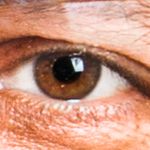Copy link to clipboard
Copied
 1 Correct answer
1 Correct answer
No - the photos do not lose quality. You see a "thumbnail", a reduced version of your image. This is important for people with thousands of images. Adobe will never give you the full file again, only someone who buys a license will get it.
Copy link to clipboard
Copied
No - the photos do not lose quality. You see a "thumbnail", a reduced version of your image. This is important for people with thousands of images. Adobe will never give you the full file again, only someone who buys a license will get it.
Copy link to clipboard
Copied
What you say may be true, but even though the resolution of my photos is high, when I upload them, the resolution drops and they are rejected due to "Quality Issues". Do you have a suggestion for this situation?
Copy link to clipboard
Copied
How do you know that resolution is the issue that caused your images to be rejected? Once you've submitted your image to Adobe, there is nowhere in your Portfolio where you can see the full size, full resolution image that the Moderators are looking at when they make their assessment. The sample that you attached is the tiny thumbnail from your account page, and is NOT what the Moderators see.
Copy link to clipboard
Copied
What you say may be true, but even though the resolution of my photos is high, when I upload them, the resolution drops
By @Utku Eren
No, the resolution stays as is. The quality stays as is. The buyer gets exactly the picture you uploaded. Only the filename changed to an Adobe internal file name, like “AdobeStock_1234567”.
(...) and they are rejected due to "Quality Issues". Do you have a suggestion for this situation?
By @Utku Eren
Check your pictures. Quality issues are not related to the resolution, but have other reasons, like artefacts, under/over exposure, composition etc.
In your case, you have artefacts:
I would even guess that you did a cutout to get rid of the background. Even though you did a good job, I think that I see some errors in the corners, shadows, and texture. Personally, I would have cleaned up also the dust particles, before submitting.
In addition, I see compression artefacts, but that may well be because you recompressed to post here.
Copy link to clipboard
Copied
Copy link to clipboard
Copied
The quality issues have been highlighted in the above post by @Abambo
Copy link to clipboard
Copied
Copy link to clipboard
Copied
So what can I improve in the picture below?
By @Utku Eren
You need to correct the errors (and as a side note: You do not need to post the same image again and again 🙂 ) .
Copy link to clipboard
Copied
While I see the matter with the light line at the cutout, I dont understand why you would go deeper than 100%. there is no sharp picture or picture without pixel stairs and artefacts once you go deeper.
Copy link to clipboard
Copied
I don't understand, can you explain again.
Copy link to clipboard
Copied
I don't understand, can you explain again.
By @Utku Eren
Sandra asks why I check the assets at a higher magnification. She didn't comment on your picture.
Copy link to clipboard
Copied
While I see the matter with the light line at the cutout, I dont understand why you would go deeper than 100%. there is no sharp picture or picture without pixel stairs and artefacts once you go deeper.
By @Sandra31258532611x
For checking. You see the artefacts, present in the asset, and to be noticed at 100%, more easily.
Seen at 100%:
But the errors are easier to detect and to point out at a higher magnification, especially if you have a high-resolution screen with a high pixel density. If you have a trained eye, as the moderators have, they need a second or two to detect at least one error in an image and that's enough to get it refused based on quality issues.
Copy link to clipboard
Copied
I disagree, at that logics I can just magnify everything to 1000% and reject all, claiming its showing pixels or unsharpness. You cant increase the size of an image on a monitor forcing the monitor to stretch one pixel of an image across multiple monitor pixels and talk about quality then. Magnifying past the native pixel size and judging a picture quality then does nothing for the one buying later, because you are judging on things you see, which wont be shown in a web interface if you do not explicitely tell your website to scale the picture past 100% of its dots, and it does nothing to a 300ppi print as well if the image is used correctly. The slight unsharpness on the left side of the radio is barely detectable in 100% and you chose to go deeper to search for it, thats more than picky.
But the errors are easier to detect and to point out at a higher magnification, especially if you have a high-resolution screen with a high pixel density.
By @Abambo
I agree with this part at least tho, the high resolution monitors on the market do not well for detecting and judging picture quality in terms of print usage, and it also isnt helpful that many monitors tend to have different densities by now. however, personally i tend to keep a 72 or max 96 ppi oldschool one around my desk, for as long as possible.
Copy link to clipboard
Copied
I disagree, at that logics I can just magnify everything to 1000% and reject all, claiming its showing pixels or unsharpness.
By @Sandra31258532611x
Sharpness can be assessed at 100%. If you are experienced enough, you can see if an asset is sharp enough, by looking at it at 200% or even 300%. You do not see that at 123%.
You cant increase the size of an image on a monitor forcing the monitor to stretch one pixel of an image across multiple monitor pixels and talk about quality then.
By @Sandra31258532611x
If you don't know what you are talking about, you effectively can't.
because you are judging on things you see, which wont be shown in a web interface if you do not explicitely tell your website to scale the picture past 100% of its dots
By @Sandra31258532611x
I do not judge a picture on a website. I download it to check it in Photoshop. I use the website on my iPad, but then, I look at pictures who have easy to detect errors. But if you mean that the buyer intends to use it on a website, they will scale it down anyhow, and most of the errors will disappear. The asset is good enough to be displayed on a standard website. None did say the contrary.
(...)and it does nothing to a 300ppi print as well if the image is used correctly.
By @Sandra31258532611x
What does this mean: be used correctly? And what does 300ppi mean for a picture? Does that mean that I print a 2-inch picture, a 20-inch picture or a 200-inch picture?
The slight unsharpness on the left side of the radio is barely detectable in 100% and you chose to go deeper to search for it, thats more than picky.
By @Sandra31258532611x
Let me tell you, how I detected the slight unsharpness on the left side: the other sides are sharper. In this case, the problem is inconstancy, and looking at all sides at 100%, I see a difference. By itself, it wouldn't catch my eye, but as I did cutouts for some 30 years, and overseen the work of my graphic artists in my department, I have an eye for inconsistencies. And when you see it, you do pixel peeping because you need to explain it. There is a reason for doing pixel peeping. It's not done to say that the asset is out of focus.
But the errors are easier to detect and to point out at a higher magnification, especially if you have a high-resolution screen with a high pixel density.
By @Abambo
I agree with this part at least tho, the high resolution monitors on the market do not well for detecting and judging picture quality in terms of print usage, and it also isnt helpful that many monitors tend to have different densities by now. however, personally i tend to keep a 72 or max 96 ppi oldschool one around my desk, for as long as possible.
By @Sandra31258532611x
I have 2 computers and one computer. Both computers have 27" screens. One are 4k screens, one are UHD screen. I love both of them. But to check picture quality on screen at 100%, the pixel size of the 4k screens are so small. I need to put my nose in front of the screen to see the same problems that are easily to detect on the UHD screen. It may be my age, my fading sight, my need for new glasses. Make your choice.
Copy link to clipboard
Copied
I agree.
Copy link to clipboard
Copied
I agree
Copy link to clipboard
Copied
I agree
By @Utku Eren
Allow me to explain this again for you. Moderators do not need to explain the reason of the refusal. So that part is simple and fast. They look at your picture, check some parameters and then, when they see a first error, they refuse without checking the rest. They do not need to check the rest because they found an error.
Now you got a refusal and you post here. We check the assets, do pixel peeping and point out all the errors we see. To doing this, I download the pictures, load them into Photoshop and check out the asset. I open your asset and the first thing I see at 50% is that the corners are weird:
As a moderator, I would hit the refuse button and I would mark quality issues, and I would check the next asset. It's as easy as this.
I could also go for your shadows:
Same screenshot, same 50%.
There is no need to go at 100% or 200% or 1000%. The picture can be refused at any magnification size.
But for showing and explaining to you the errors in an asset, I (not a picture moderator) will go to 100% and check the sharpness. It's sharp. I will check the histogram. It's OK. And I will move on and move on to see all (or many) of the errors and point out one by one. By that time, the Adobe stock image moderator has checked 100 other assets.
(now please check out also my answer to @Sandra31258532611x, just allow me 10 minutes to formulate that 🙂)
Copy link to clipboard
Copied
Adobe does not modify your file and when accepted, it will go straight to the database. Buyers get the original file as you have submitted it. So, this isn't really a problem. The display will always be a web optimized picture, for speed and bandwidth use.
Copy link to clipboard
Copied
Do you have a question for the community? Why did you post this image?
Find more inspiration, events, and resources on the new Adobe Community
Explore Now






